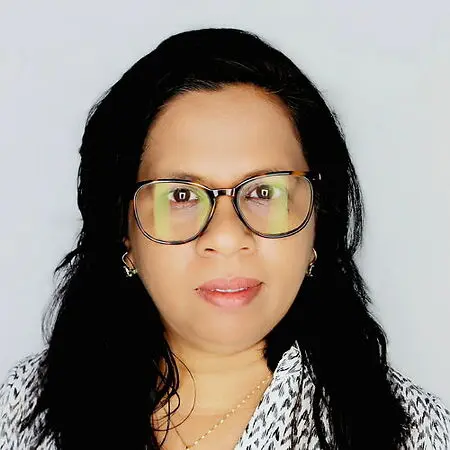Ananya Paul, PhD

Ananya Paul, Ph.D. is a Research Scientist I at Georgia State University in Atlanta, Georgia, where she brings more than 15 years of experience as a biophysical chemist and chemical biologist. A graduate of the Indian Institute of Science, Dr. Paul’s research centers on developing drugs that target nucleic acid complexes with proteins and transcription factors—an area critical to understanding viral and parasitic diseases. Her recent studies on the West Nile virus and Herpes virus have contributed to advancing small-molecule therapies that modulate these complex biological interactions. She has also conducted pioneering work on sleeping sickness parasites and higher-order nucleic acid structures, demonstrating her expertise in both fundamental and applied aspects of drug discovery.
Throughout her career, Dr. Paul has combined her extensive background in biophysical, biochemical, and computational chemistry with a passion for translational science. Her most notable achievement includes recent research on acute myeloid leukemia compounds, which have shown promising therapeutic activity. She is highly skilled in advanced experimental and computational techniques such as Isothermal Titration Calorimetry (ITC), Surface Plasmon Resonance (SPR), Fluorescence Spectroscopy, and Molecular Dynamics Simulations, which she uses to analyze small-molecule interactions with biomacromolecules. Dr. Paul’s scholarly record includes over 40 peer-reviewed publications and three book chapters, as well as active contributions to NIH and NSF-funded projects and numerous leading scientific journals as a peer reviewer.
Dr. Paul attributes her professional inspiration to her early experiences observing the impact of disease and her growing fascination with medicinal chemistry. Initially drawn to the synthesis of organic small molecules, she soon became intrigued by their biological activities, which shaped her interdisciplinary research path. At Georgia State University, she continues to mentor undergraduate, graduate, and postdoctoral researchers, fostering collaboration and innovation across scientific disciplines. Her dedication to advancing molecular-level understanding of disease mechanisms reflects both her intellectual rigor and her enduring commitment to improving global health through chemistry-driven discovery.
• Indian Institute of Science (IISc) - PhD
• Indian Institute of Technology, Kharagpur - MS
• Teaching
• Various Chemistry Scientific Journals
What do you attribute your success to?
I attribute my success to the incredible mentors who guided me throughout my academic journey. From a dedicated high school professor to those who supported my transition from a rural background to studying in the United States, each mentor played a pivotal role in shaping my path. Their passion for education and commitment to their students deeply inspired me and continue to influence how I approach my own work. Although I am not on a tenure track, I have made it a priority to give back by mentoring graduate, undergraduate, and project students sharing the same guidance and encouragement that once helped me succeed.
What advice would you give to young women entering your industry?
My advice to young women entering this field is to prioritize education, embrace research, and cultivate independence. A strong foundation of knowledge and curiosity will open doors and set you apart. I also encourage women to seek visibility sharing their stories, achievements, and perspectives through influential platforms. By doing so, we not only inspire others but also strengthen our own professional presence and contribute to a more empowered community of women in our industry.